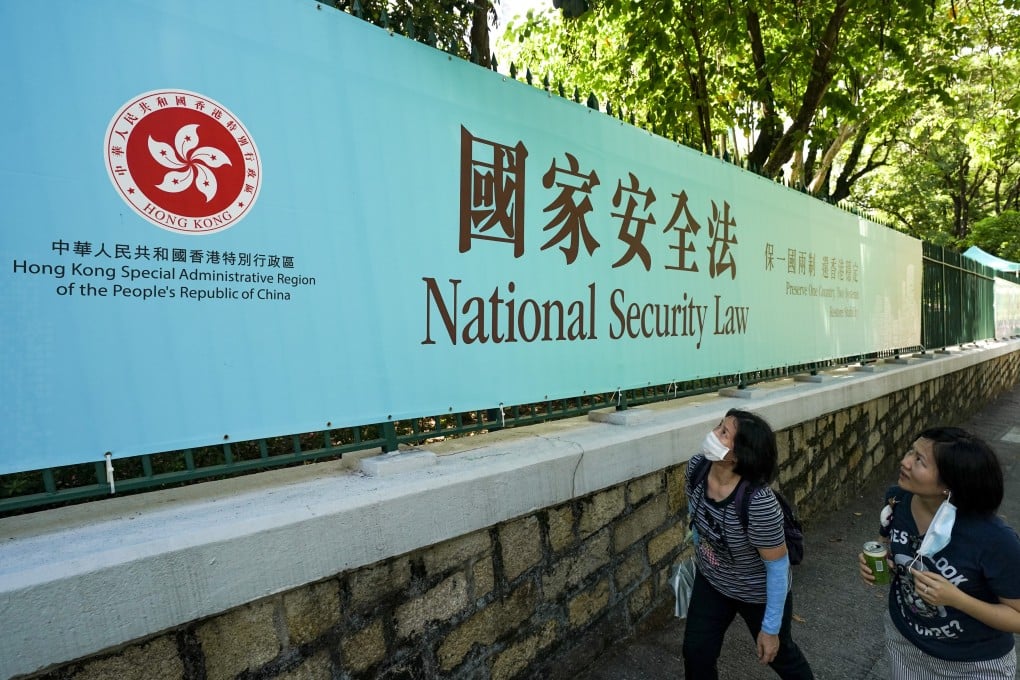China says US extension of Hong Kong emergency rules ‘tramples’ international law
- Sweeping sanctions power renewed by President Joe Biden who accuses Beijing of fundamentally undermining Hong Kong’s autonomy
- ‘If the US uses Hong Kong as a pawn in the game, China has to hold the line,’ says Chinese academic

The Office of the Commissioner of the Ministry of Foreign Affairs in Hong Kong on Thursday said Washington had employed “unscrupulous gangster logic” to use the city as a tool to suppress China, and “grossly trampled on international law and the basic norms governing international relations”.
“Long gone are the days when external forces arbitrarily meddled with Hong Kong affairs; long gone are the days when one colluded with anti-China destabilising forces to create disorder in Hong Kong; and long gone are the days when others could force us to tolerate actions that will harm our national sovereignty and security through pressure and sanctions,” a spokesman for the office said.
The Hong Kong government followed up with a statement urging the US to stop interfering in the city’s affairs and condemning Washington’s “barbaric acts reflecting the self-proclaimed US supremacy”.

02:23
Multiple overseas rallies mark anniversary of first major clash of 2019 Hong Kong protests